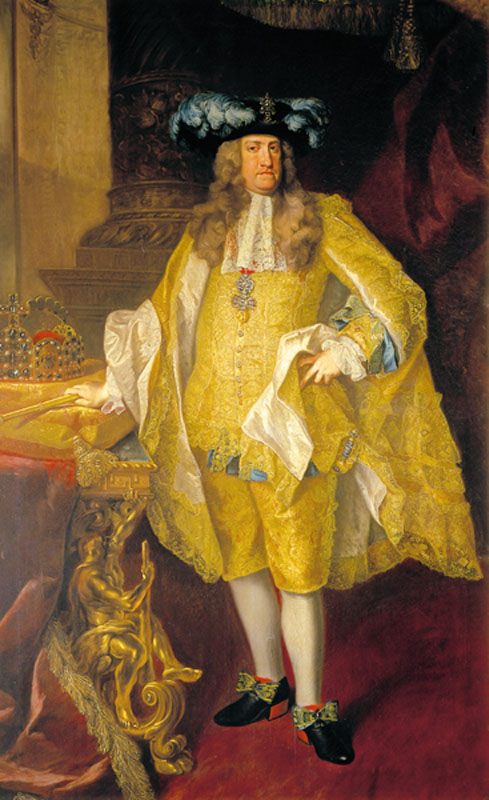
1740
Death of Charles VI, Holy Roman Emperor.

Death of Charles VI, Holy Roman Emperor.
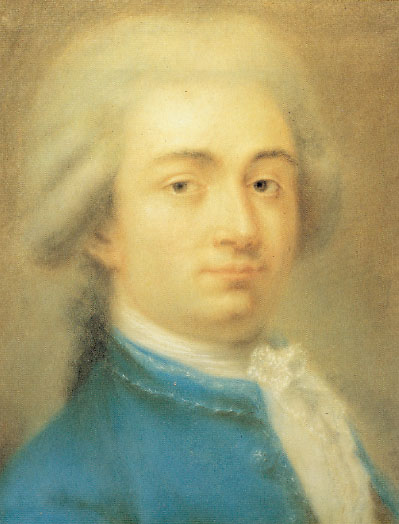
Carlo Goldoni has success reviving the tradition of commedia dell'arte. The tradition which began in 16th century Italy used dance, music and buffoonery and is the basis of modern pantomime.
Successive years of rain and cold weather lead to the Irish Famine, killing an estimated 38% of the 1,740 population.
Debut of Garrick at Ipswich in Oroonoko, or The Royal Slave, and then at Goodman's Fields.
New scene-changing technology introduced in Venetian theatre Teatro Novissimo.
The Little Theatre Haymarket reopens with the arrival of classical actor Charles Macklin.
David Garrick makes his debut stage appearance anonymously, performing the masked part of Harlequin at an unlicensed theatre in Goodman’s Field.
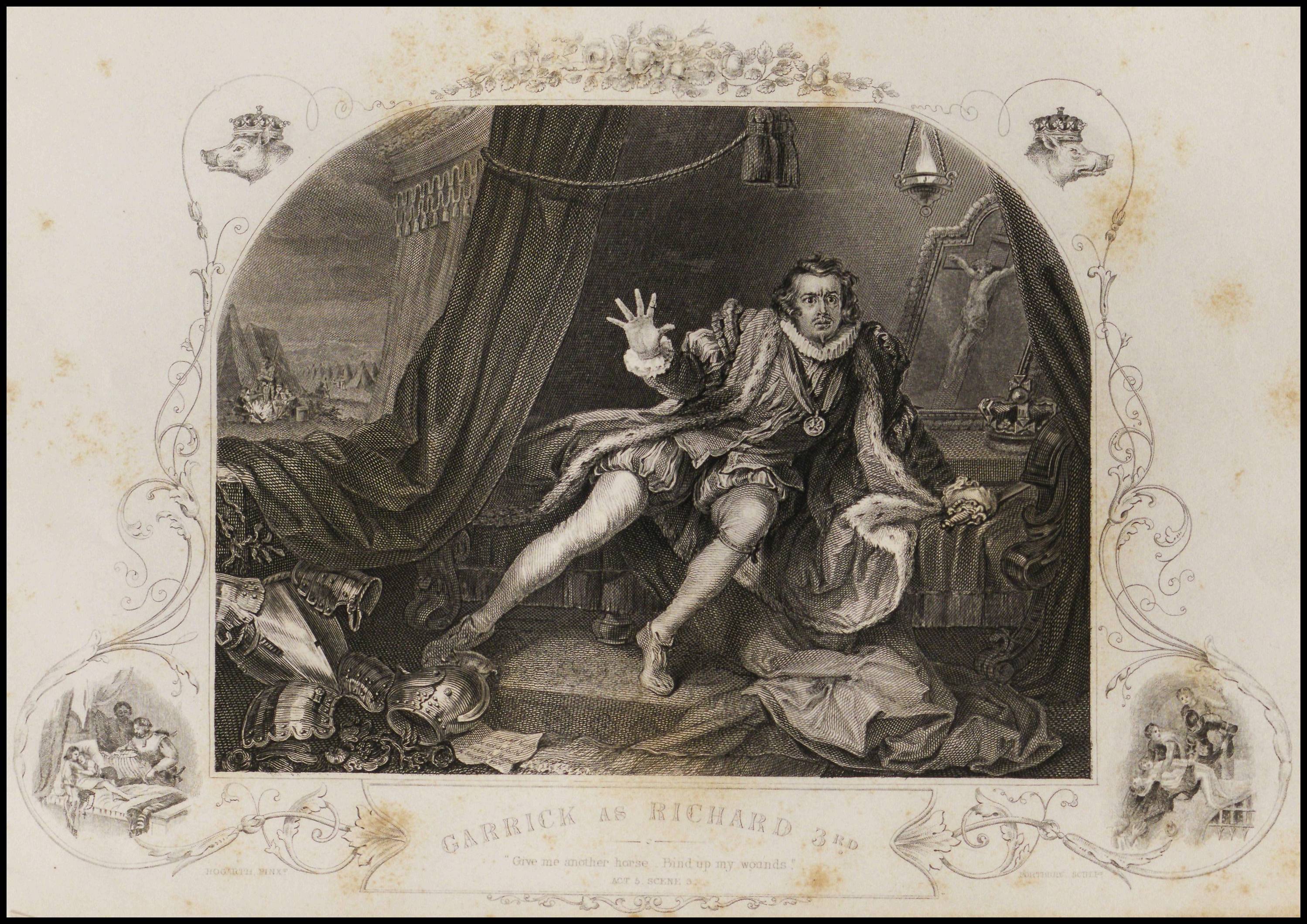
David Garrick takes on the part of Richard III at Goodman's Field, playing the character in a more naturalistic style, achieving overnight success.
David Garrick joins the Drury Lane Theatre company.
Resignation of Prime Minister Robert Walpole following a motion of no confidence.
Gifford's Company moves to Lincoln's Inn Fields.
France declares war on England as part of the War of Austrian Succession. An invasion is planned and launched only to be partly wrecked and driven back by violent storms.
Garrick Publishes his Essay on Acting, sharing his thoughts on staging adaptations of Shakespeare.
The third Jacobite Rising, also known as 'the forty-five', begins in Great Britain. Charles Edward Stuart, more commonly known as 'Bonnie Prince Charlie', leads the Scots in a revolt against the Hanoverian monarchy.
David Garrick makes his only appearances at Covent Garden.
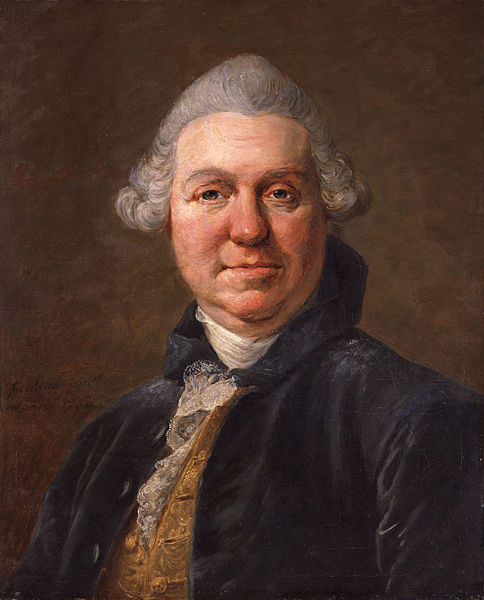
Samuel Foote secures a lease on the Haymarket Theatre.
An agreement dated 9 April 1747 established the partnership of David Garrick and James Lacey at Drury Lane. After purchasing the patent renewal to become joint paintees and co-managers, this management partnership would last until Lacy's death in 1774.
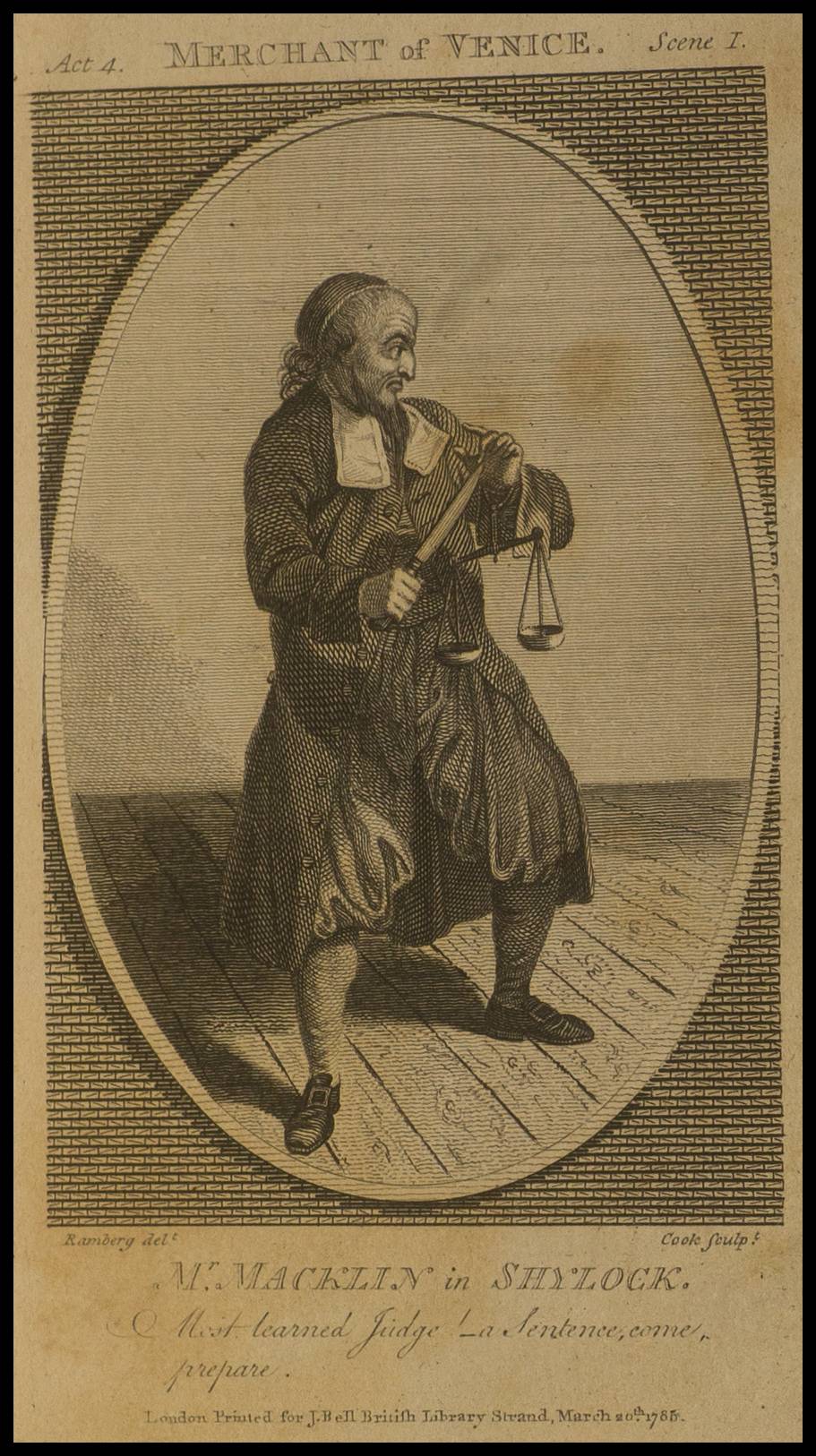
The newly redecorated Drury Lane Theatre opens with a production of The Merchant of Venice, with actor Charles Macklin taking the role of Shylock.
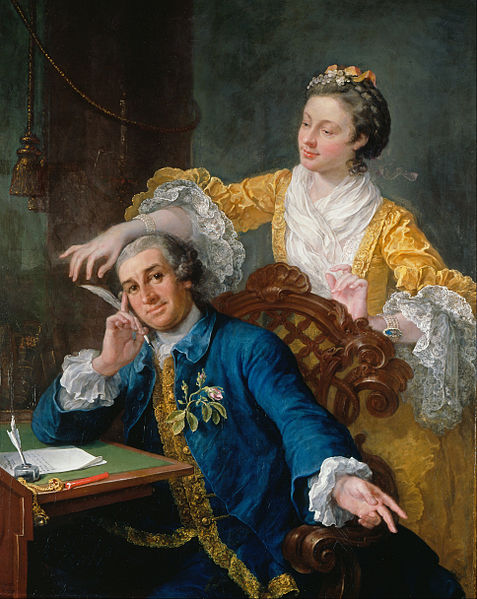
David Garrick marries Viennese opera dancer Eva Maria Veigal.
Little Haymarket Theatre is gutted by a riot after a hoaxer 'The Bottle Conjurer' claimed he could fit his whole body inside a wine bottle but failed to appear on stage.
Spranger Barry leaves Drury Lane for Covent Garden after rivalry developed between himself and David Garrick. The two were being alternated for the part of Romeo. Barry left and subsequently Drury Lane and Covent Garden ran the rival Romeo and Juliets head to head.
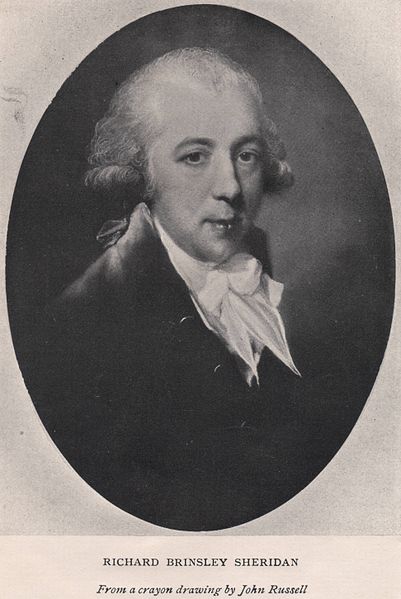
Birth of playwright and novelist Richard Brinsley Sheridan in Dublin, Ireland. Sheridan went on to write the successful plays The Rivals, The School for Scandal, The Duenna and A Trip to Scarborough.
The Disorderly Houses Act passes meaning that London magistrates have the power to regulate theatres.
One of the earliest theatres in New York, Nassau Street Playhouse, opens its doors.
Gregorian calendar adopted in Great Britain and its colonies under the Calendar (New Style) Act 1750.
The Marriage Act is passed, requiring a formal ceremony of marriage for the first time.
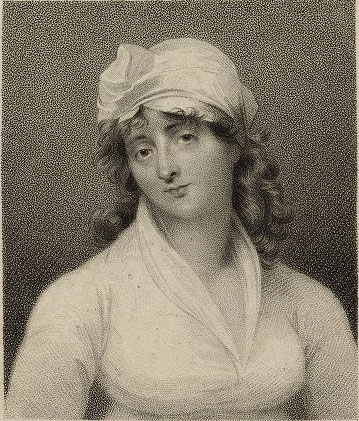
Birth of English novelist and actress Elizabeth Inchbald.
Jewish Naturalization Act is passed allowing Jews to become naturalised by application to Parliament.
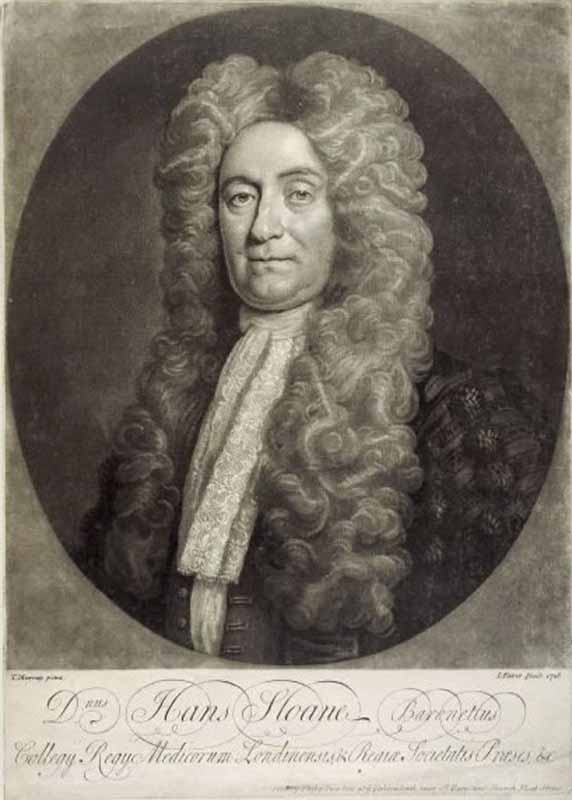
The British Museum is established. Following the death of naturalist Sir Hans Sloane, his collection of around 71,000 objects were bequeathed to the nation. The British Museum Act 1753 added the Cottonian and the Harleian Libraries to the Sloane collection.
Outbreak of the French and Indian War in North America.
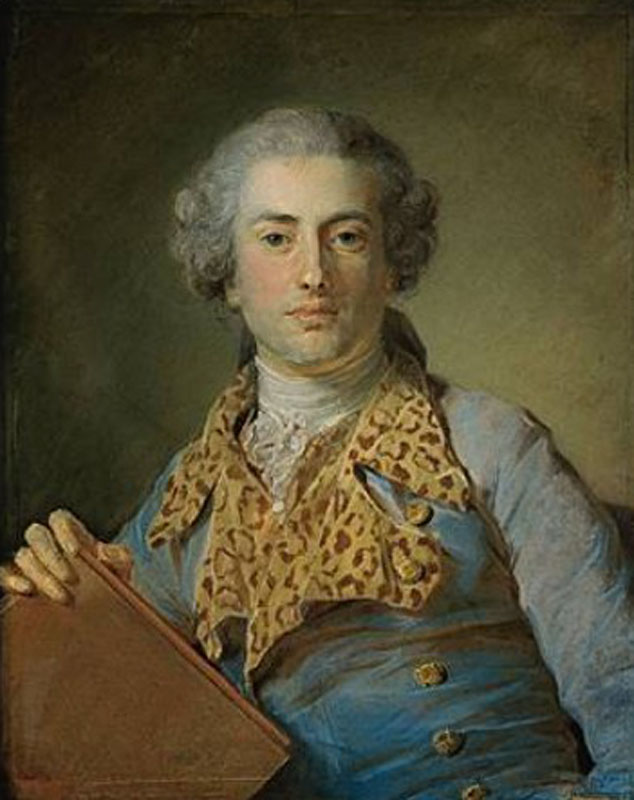
Growing hostilities between the English and the French lead to anti-French riots at Drury Lane. The riots were a reaction to Frenchman Jean-Georges Nouverre's ballet The Chinese Festival and its largely French cast.
Birth of Sarah Siddons, eldest child of Roger Kemble and sister to John Phillip, Charles and Stephen. She went on to become one of the most famous actresses of the 18th century, most well known for her portrayal of Lady Macbeth.
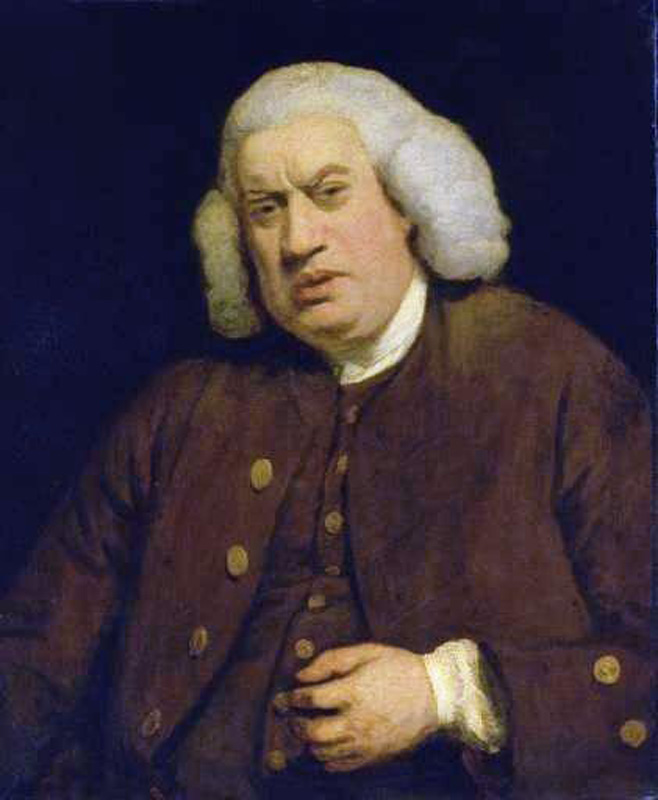
On the 15 April 1755 Samuel Johnson publishes A Dictionary of the English Language, now one of the most famous dictionaries in history.
The great powers of Europe descend into war, with France, Austria and Sweden becoming allies against Great Britain, Hanover and Prussia. One of the main causal factors of the war concerned the colonial disputes between Great Britain and France in regard to North America.
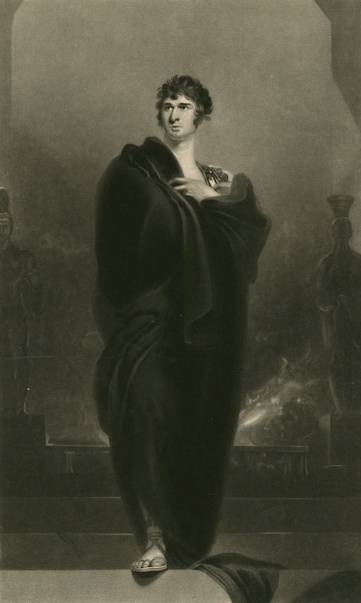
John Phillip Kemble is born.
Death of Colley Cibber, actor, manager and playwright.
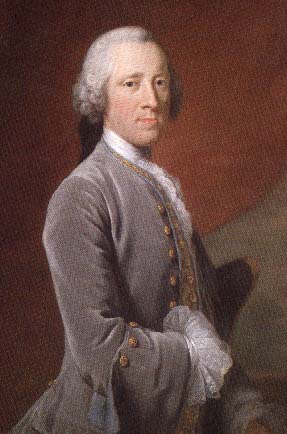
William Cavendish, 4th Duke of Devonshire, enters the office of Lord Chamberlain, taking on the responsibility of play censorship.
The New Theatre Norwich opens with a performance of The Way of the World by William Congreve.
Composer George Frederic Handel dies at his home on Brook Street, London, at age 74.
Actor Charles Macklin, champion of naturalistic acting, makes his return to Drury Lane.
King George II dies at the age of 77 and is succeeded by his son George III.
Robert Lloyd publishes The Actor, highly praising David Garrick.
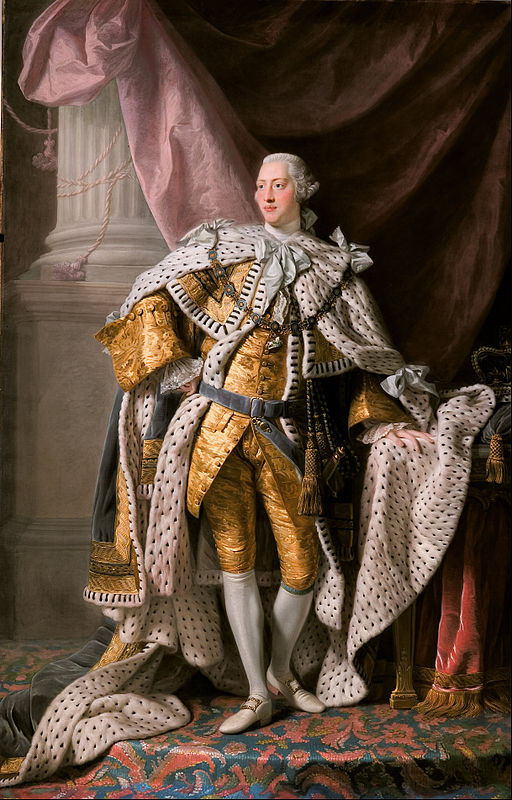
Coronation of King George III, aged 22.
Death of theatre manager John Rich.
John Stuart, 3rd Earl of Bute, becomes Prime Minister.
Outbreak of the Anglo-Spanish war, part of the Seven Years War, after Spain signs a family compact with France.
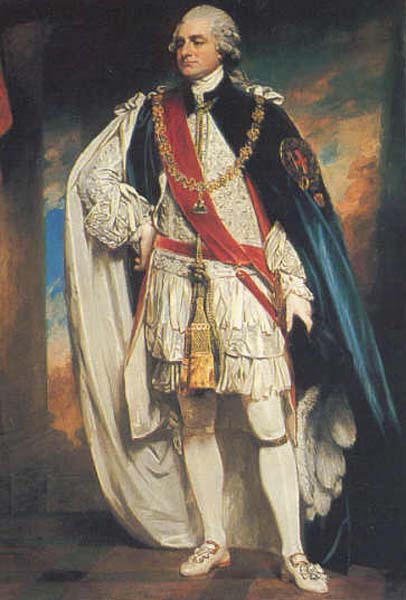
George Spencer, 4th Duke of Marlborough, enters the office of Lord Chamberlain, taking on the responsibility of play censorship.

Wolfgang Amadeus Mozart, just six years old, performs for the Habsburg Empress Maria Theresa.
Birth of George Colman the Younger, son of George Colman the Elder.
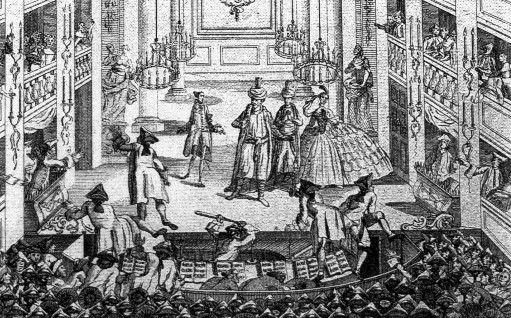
Covent Garden and Drury Lane theatres both suffer the Half Price Riots, when managers refuse to admit half price tickets.
Opening of The Alston Street Theatre, the first permanent theatre in Glasgow.
Britain introduces the Sugar Act, imposing a levy on sugar, wine and textiles imported into America.
Horace Walpole publishes The Castle of Otranto, the first Gothic novel.
American Revolution.
The Stamp Act is passed directing that all printed material in the British colonies be produced on stamped paper produced in London. The tax was intended to pay for British troops stationed in North America after the Seven Year War.
The publication of Johnson's long awaited edition of Shakespeare. The proposal for the edition had been printed in 1756.
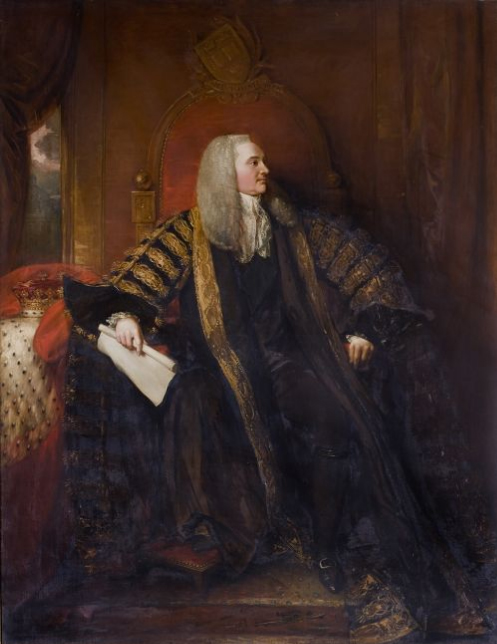
William Henry Cavendish-Bentinck, 3rd Duke of Portland, enters the office of Lord Chamberlain.
The Stamp Act is repealed.
The patent for Little Haymarket Theatre is obtained by Samuel Foote.
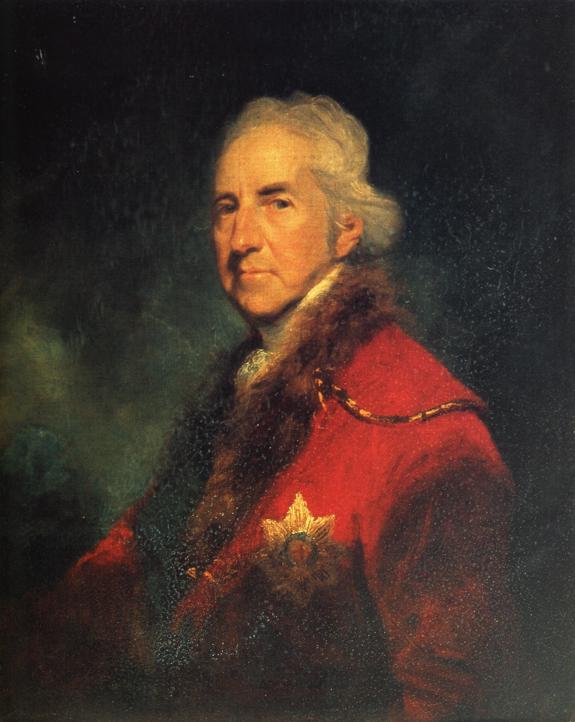
Francis Seymor-Conway, 1st Marquess of Hertford, enters the office of Lord Chamberlain.
Edinburgh Theatre Royal is granted a patent, with the Theatre Royal on Shakespeare Square opening in 1769. Edinburgh has since had four theatres named the Theatre Royal, the last three all standing on the same site.
The Little Theatre Haymarket reopens after refurbishment as the Theatre Royal Haymarket, having secured a patent for the summer months.
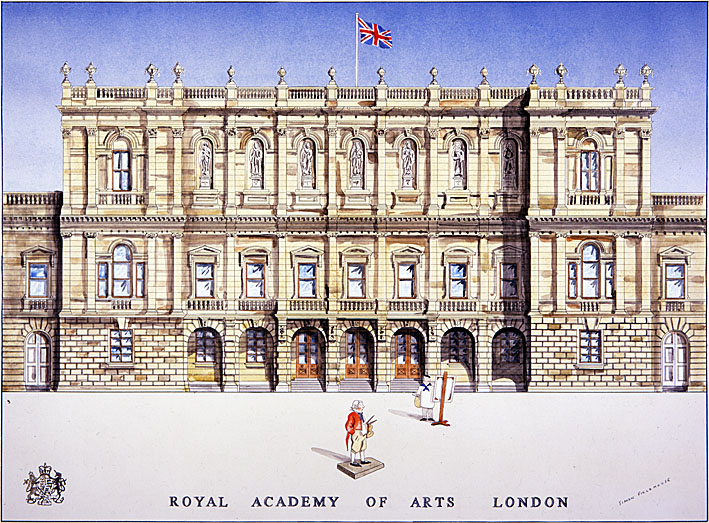
A personal act of King George III founds The Royal Academy of Arts.
Theatres in Bath and Norwich are granted patents.
The Shakespeare Jubilee organised by David Garrick takes place in Stratford-upon-Avon to celebrate the life of William Shakespeare.
York Theatre is granted a patent.
William Wordsworth, English romantic poet, is born.
Liverpool Theatre obtains a patent.
Dramatist Thomas Dibdin is born to theatre manager Charles Dibdin and actress Harriet Pit.
Somerset v. Stewart. The English Court of Kings Bench ruled that a slave could not be forcibly removed from the country.
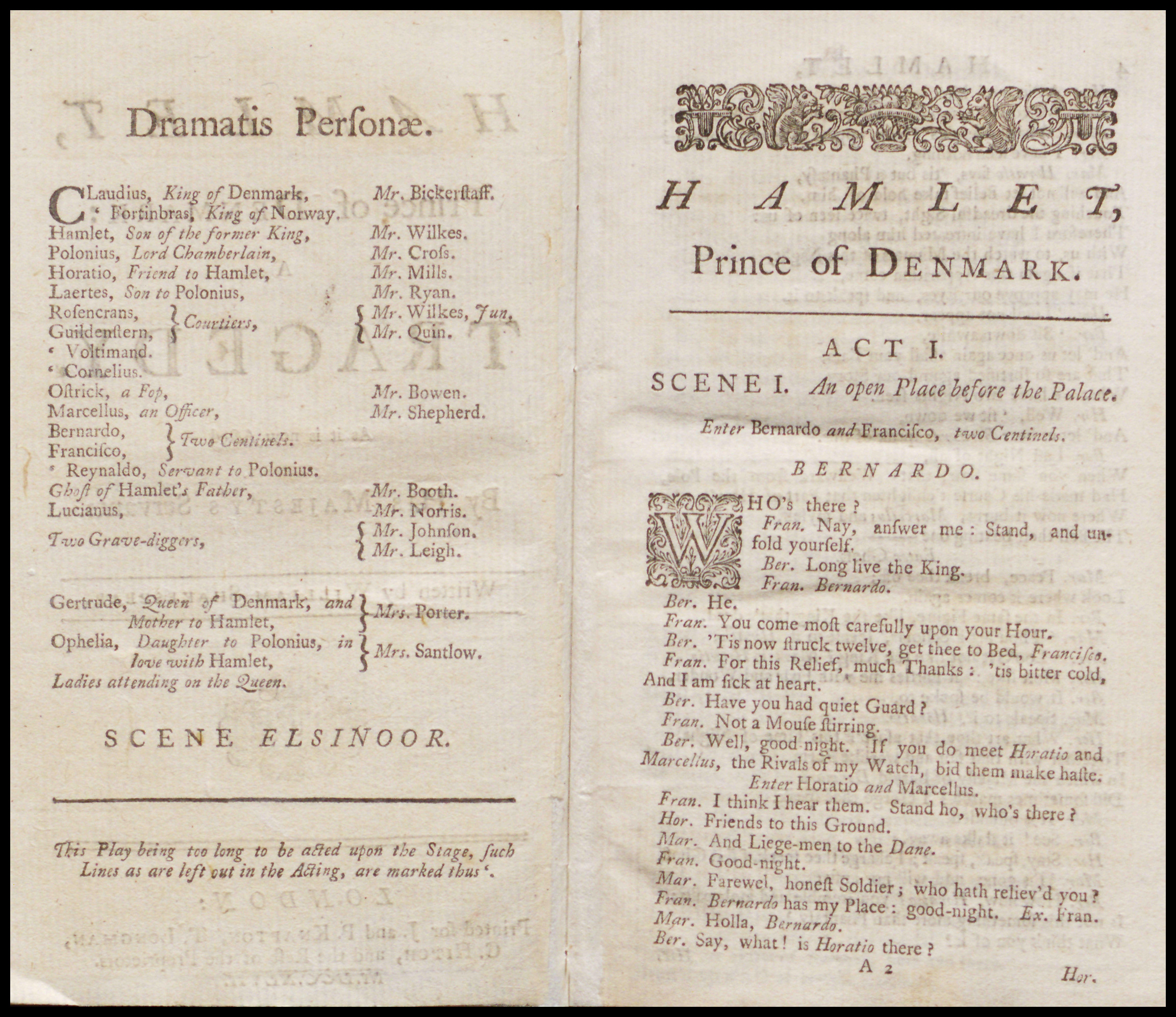
On 10th February, David Garrick's controversial rewrite of Hamlet is performed at Drury Lane in London, where Garrick is manager.
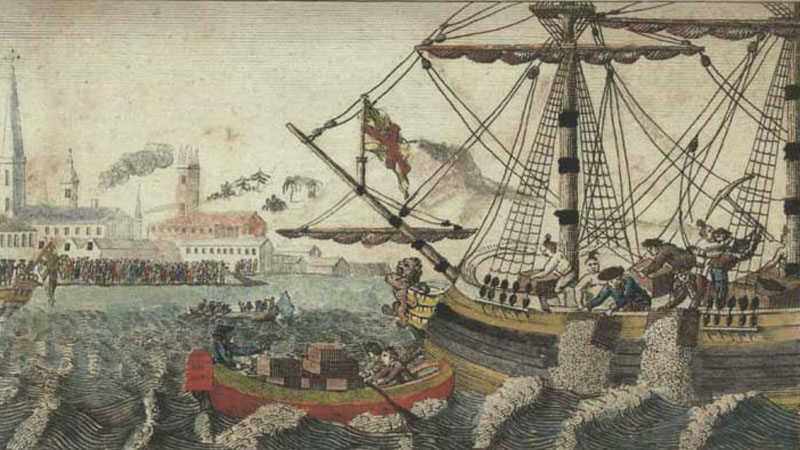
The Boston Tea Party. The Sons of Liberty hold a political protest and destroy a shipment of tea brought in by the East India Company in reaction to the Tea Act passed on the 10th May.
Charles Macklin appears at Covent Garden as Macbeth wearing traditional Scottish dress.
The First Continental Congress is held in America. They pass the Articles of Association which, while mainly concerned with the banning of all trade with Britain, also banned all theatrical performances, putting them in the same undesirable class as gaming and cock-fighting.
Perpetual copyright is abolished.
American War of Independence between Great Britain and thirteen of its North American colonies.
Unsuccessful debut of Sarah Siddons at Drury Lane.
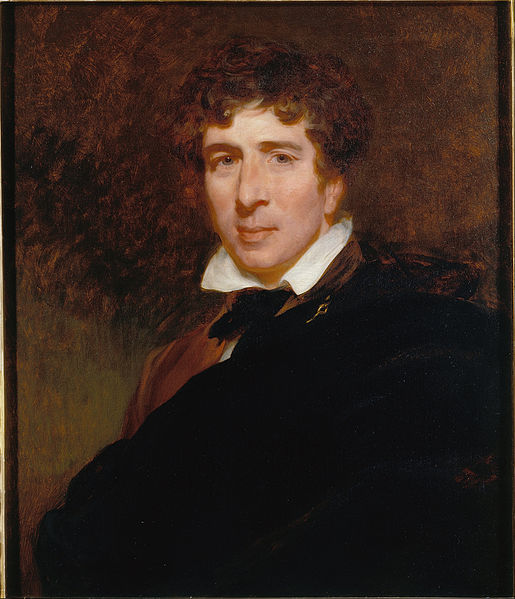
Charles Kemble is born.
The first Theatre Royal in Manchester opens its doors.
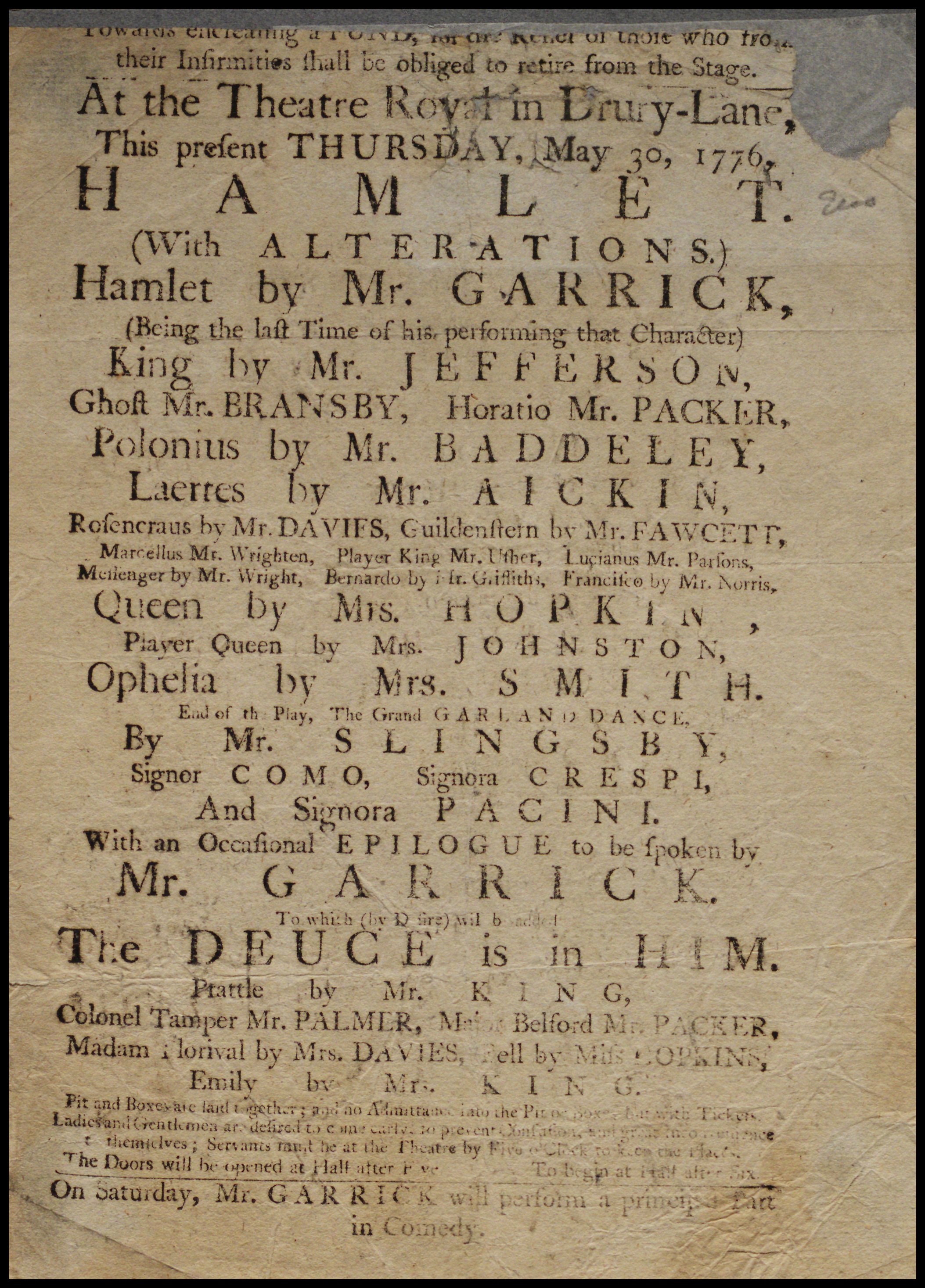
David Garrick appears as Hamlet at Drury Lane, "being the last time of his performing that character", on 30th May 1776.
American Declaration of Independence.
Richard Brinsley Sheridan becomes manager of Drury Lane following David Garrick's resignation
Smith publishes The Wealth of Nations.
George Colman the Elder purchases the Theatre Royal Haymarket.
Death of John Kelly and Samuel Foote.
Catholic Relief Act.
Bristol Theatre obtains patent.
Joseph Grimaldi is born.
John Larpent appointed Examiner of Plays by the Marquis of Hertford. He serves until 1824.
War with Spain.
David Garrick dies on the 20th January 1779 and is buried in Poet's Corner, Westminster Abbey.
The Gordon Riots. Anti-Catholic violence rips through London in protest of the Papists Act of 1778.
The American War of Independence comes to an end.
Covent Garden is enlarged to a capacity of 2,170.
Sarah Siddons makes her return to Drury Lane.
Treaty of Versailles.
George Montagu, 4th Duke of Manchester, enters the office of Lord Chamberlain.
Stephen Kemble marries Elizabeth Satchell.
James Cecil, 1st Marquess of Salisbury, enters the office of Lord Chamberlain.
Mary Ann Davenport first appears on stage at Bath.
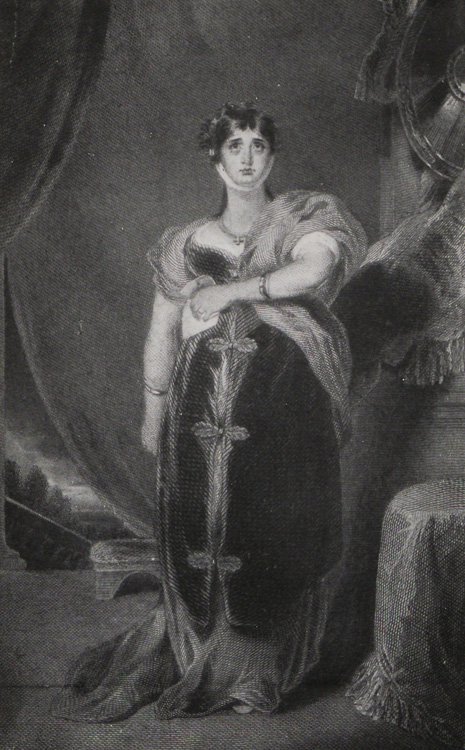
Sarah Siddons appears as Lady Macbeth for the first time.
John Phillip Kemble publishes Macbeth Reconsidered.
British actor Edmund Kean is born in London.
Mozart's Don Giovanni debuts in Prague.
Smock Alley in Dublin closes.
The Society for the Abolition of Slavery is founded.
William Chetwynd appointed Examiner of Plays on the 10 March 1788.
George III suffers with extreme mental health issues.
John Phillip Kemble becomes manager at Drury Lane.
Opening of Astley's Amphitheatre.
Lord Byron is born in Dover, England.
The Times, Britain's oldest surviving newspaper, is founded.
The French Revolution begins bringing social and political upheaval to France.
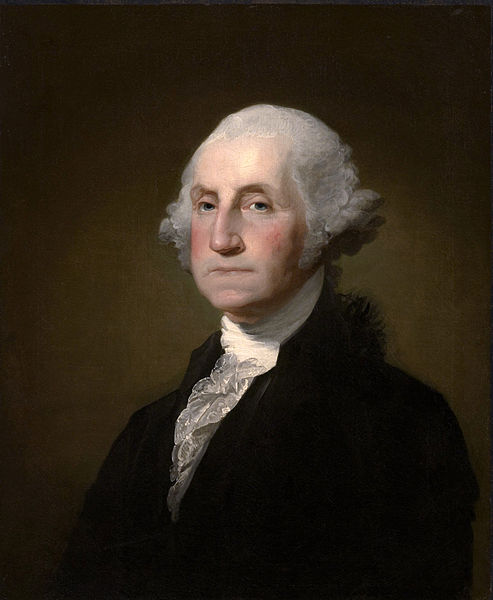
George Washington becomes the first President of the United States.
Declaration of the Rights of Man.
Colman the Younger takes charge at Haymarket after Charles Macklin retires.